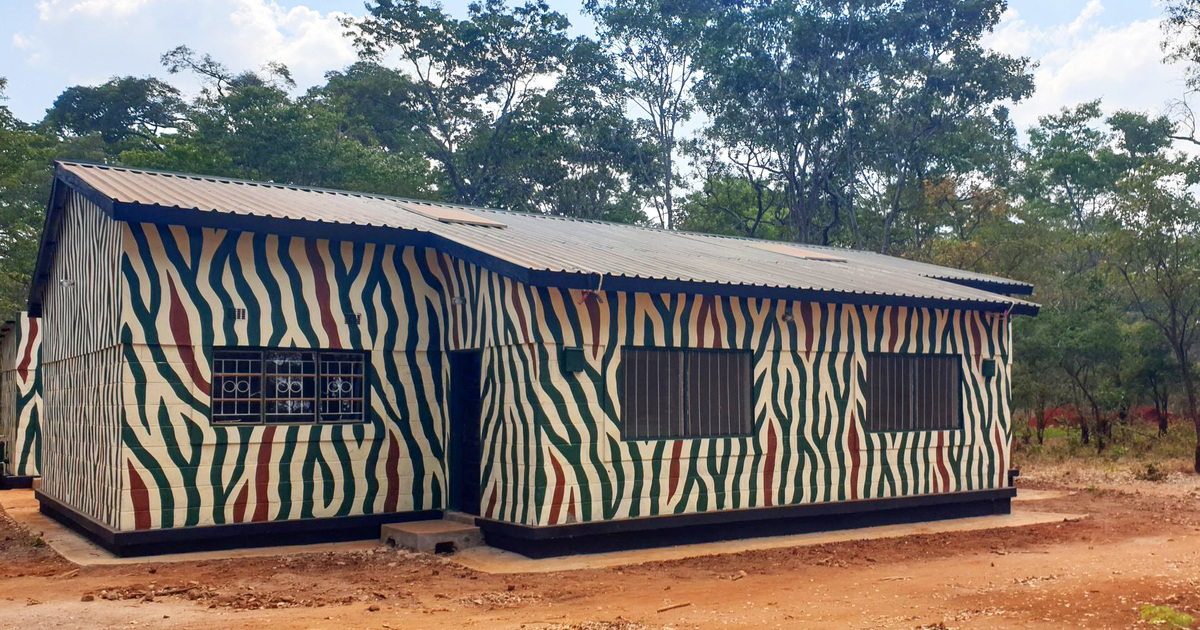
All that has changed with the construction of a new base and comfortable housing for the rangers at the Chikomeni Camp—all part of IFAW’s commitment to supporting the welfare of wildlife rangers.
A place for rangers to recharge
Towering miombo trees surround five houses—allocated for senior and regular officers—each painted in ranger combat fatigue colours. The new facilities will provide rangers with an ideal environment to relax and recharge between patrol assignments.
Patricio Ndadzela, IFAW’s country director for Malawi and Zambia, says that improved ranger welfare through housing construction is key to our strategic activities for the landscape.
‘There’s no doubt that well-looked-after rangers are more enthusiastic, work harder, and are more determined to meet the challenges of working in a wild environment,’ he says, adding ‘The rangers are the first line of defence in our conservation work inside the national parks, and improving their welfare motivates them to engage extra gear in their efforts. The houses are part of IFAW’S response to that call.’
The new Chikomeni camp includes a modern administration block and comfortable accommodation.
Ranger support benefits conservation
Over the past five years, IFAW has supported field officers in the landscape with uniforms, patrol vehicles, equipment, training in law enforcement, food rations, and allowances—provisions that used to be hard to come by. This initiative has significantly improved rangers’ morale and has ultimately contributed to decreased poaching in the landscape over the past few years.
Daka and his colleagues are equally excited: ‘We have not seen such beautiful houses for a long time. This base, alongside the other equipment and provisions that are supplied, is a big incentive to all of us to work harder,’ he says.
Erastus Kancheya, Department of National Parks and Wildlife (DPNW)’s Area Warden for East Luangwa Area Management Unit, where Lukusuzi and Luambe national parks lie, commended IFAW for putting up a type of accommodation which he said will tremendously contribute to the conservation of biodiversity in the park.
‘Rangers and their families will be elated and feel well cared for in this chosen career. In general, I see Lukusuzi National Park rising from the long-forgotten dust and awakening on the long road of meaningful conservation,”’Kancheya said.
